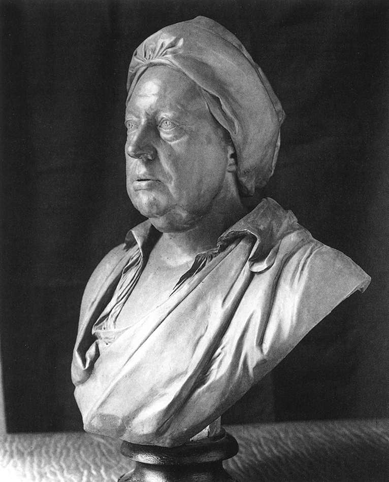John Belchier on:
[Wikipedia]
[Google]
[Amazon]
 John Belchier (also Belcher, Belchar) (bap. 1706 – 6 February 1785) was a British
John Belchier (also Belcher, Belchar) (bap. 1706 – 6 February 1785) was a British
 John Belchier (also Belcher, Belchar) (bap. 1706 – 6 February 1785) was a British
John Belchier (also Belcher, Belchar) (bap. 1706 – 6 February 1785) was a British surgeon
In medicine, a surgeon is a medical doctor who performs surgery. Even though there are different traditions in different times and places, a modern surgeon is a licensed physician and received the same medical training as physicians before spec ...
at Guy's Hospital
Guy's Hospital is an NHS hospital founded by philanthropist Thomas Guy in 1721, located in the borough of Southwark in central London. It is part of Guy's and St Thomas' NHS Foundation Trust and one of the institutions that comprise the Kin ...
from 1736 to 1768.
Life
He was the son of James Belchier of Kingston, Surrey, and was educated atEton College
Eton College ( ) is a Public school (United Kingdom), public school providing boarding school, boarding education for boys aged 13–18, in the small town of Eton, Berkshire, Eton, in Berkshire, in the United Kingdom. It has educated Prime Mini ...
. He then became an apprentice to William Cheselden of St Thomas's Hospital. He was elected a Fellow of the Royal Society
Fellowship of the Royal Society (FRS, ForMemRS and HonFRS) is an award granted by the Fellows of the Royal Society of London to individuals who have made a "substantial contribution to the improvement of natural science, natural knowledge, incl ...
in 1732.
Belchier discovered at about the time of his Guy's appointment that the vegetable dye madder stained newly forming bone tissue, opening up the study of the growth and development of the skeleton. He was awarded the Copley Medal
The Copley Medal is the most prestigious award of the Royal Society of the United Kingdom, conferred "for sustained, outstanding achievements in any field of science". The award alternates between the physical sciences or mathematics and the bio ...
of the Royal Society
The Royal Society, formally The Royal Society of London for Improving Natural Knowledge, is a learned society and the United Kingdom's national academy of sciences. The society fulfils a number of roles: promoting science and its benefits, re ...
in 1737. This research direction was taken forward by Henri-Louis Duhamel du Monceau
Henri-Louis Duhamel du Monceau (; 20 July 170013 August 1782) was a French physician, naval engineer and botanist.
Biography
Henri-Louis Duhamel du Monceau was born in Paris in 1700, the son of Alexandre Duhamel, lord of Denainvilliers. I ...
and John Hunter.
Belchier was a member of the Court of Assistants at the Company of Surgeons; in 1766 he was one of two representatives of Guy's on the body of six, with Joseph Warner. He was on the 1768 list of governors and guardians of the Foundling Hospital
The Foundling Hospital (formally the Hospital for the Maintenance and Education of Exposed and Deserted Young Children) was a children's home in London, England, founded in 1739 by the philanthropy, philanthropic Captain (nautical), sea captain ...
.
Associations
Belchier was a friend of Georg Frideric Handel, who left money to him and his servants. He was on good terms too with the poetAlexander Pope
Alexander Pope (21 May 1688 Old Style and New Style dates, O.S. – 30 May 1744) was an English poet, translator, and satirist of the Age of Enlightenment, Enlightenment era who is considered one of the most prominent English poets of the early ...
and the sculptor Louis-François Roubiliac
Louis-François Roubiliac (or Roubilliac, or Roubillac) (31 August 1702 – 11 January 1762) was a French sculpture, sculptor who worked in England. One of the four most prominent sculptors in London working in the rococo style, he was described ...
. Pope asked Belchier to act as intermediary with Handel, in an attempt to get Handel to set his ''Ode for Musick'' (''Euridice'', 1708, published 1713) to music. This was in 1739. Handel objected: Maurice Greene had already set a version in 1730. He and Handel had fallen out, the reason being, according to John Hawkins, Handel's feeling that Greene was too interested in his rival Giovanni Bononcini
Giovanni Bononcini (or Buononcini) (18 July 1670 – 9 July 1747) (sometimes cited also as Giovanni Battista Bononcini) was an Italian Baroque composer, cellist, singer and teacher, one of a family of string players and composers. He was a rival ...
. Belchier's name occurs in the provenance of a Roubiliac bust of Pope, now at the Barber Institute of Fine Arts.
References
{{DEFAULTSORT:Belchier, John 1706 births 1785 deaths English surgeons British surgeons Fellows of the Royal Society Recipients of the Copley Medal 18th-century English people Place of birth unknown Place of death missing Date of birth unknown Physicians of Guy's Hospital